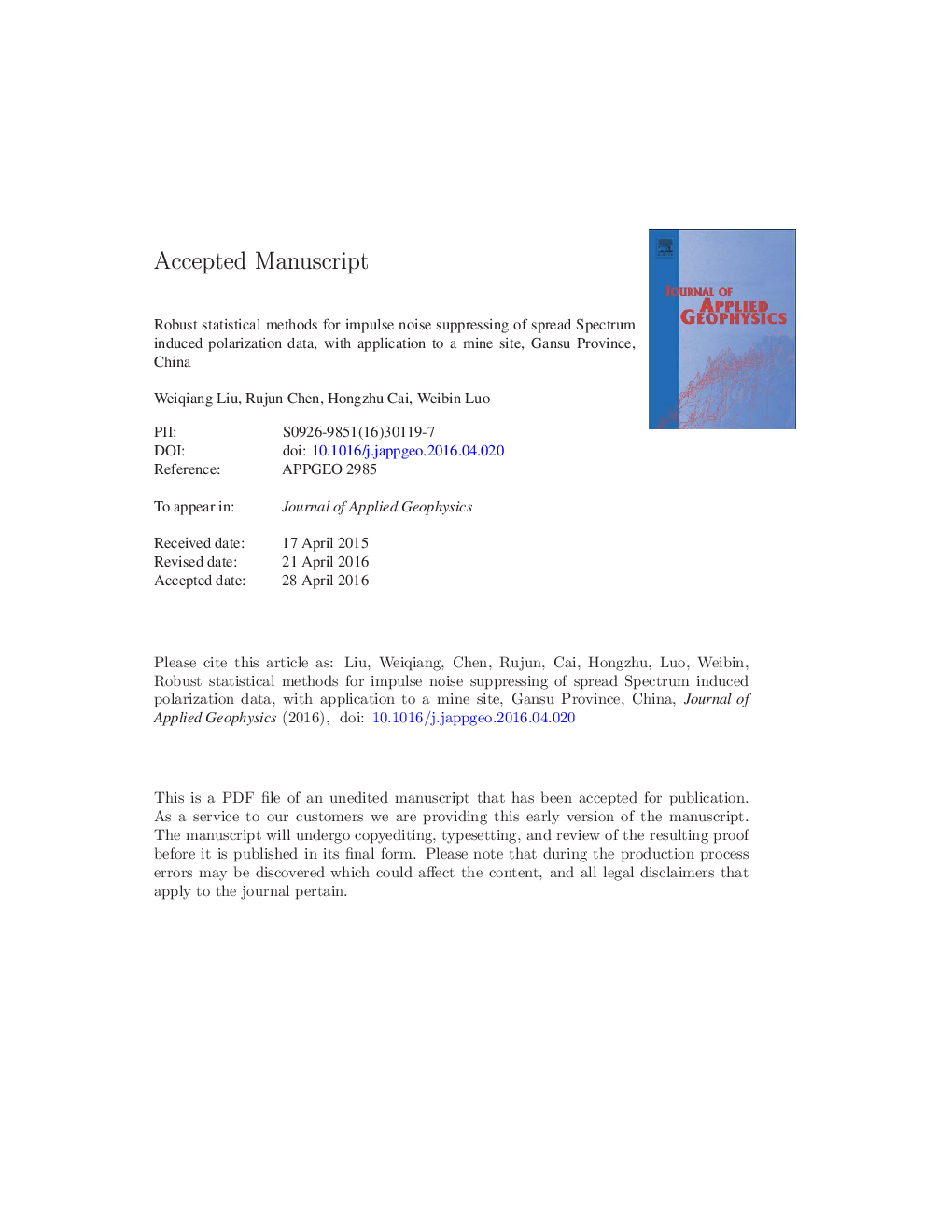| Article ID | Journal | Published Year | Pages | File Type |
|---|---|---|---|---|
| 8915628 | Journal of Applied Geophysics | 2016 | 40 Pages |
Abstract
In this paper, we investigated the robust processing of noisy spread spectrum induced polarization (SSIP) data. SSIP is a new frequency domain induced polarization method that transmits pseudo-random m-sequence as source current where m-sequence is a broadband signal. The potential information at multiple frequencies can be obtained through measurement. Removing the noise is a crucial problem for SSIP data processing. Considering that if the ordinary mean stack and digital filter are not capable of reducing the impulse noise effectively in SSIP data processing, the impact of impulse noise will remain in the complex resistivity spectrum that will affect the interpretation of profile anomalies. We implemented a robust statistical method to SSIP data processing. The robust least-squares regression is used to fit and remove the linear trend from the original data before stacking. The robust M estimate is used to stack the data of all periods. The robust smooth filter is used to suppress the residual noise for data after stacking. For robust statistical scheme, the most appropriate influence function and iterative algorithm are chosen by testing the simulated data to suppress the outliers' influence. We tested the benefits of the robust SSIP data processing using examples of SSIP data recorded in a test site beside a mine in Gansu province, China.
Keywords
Related Topics
Physical Sciences and Engineering
Earth and Planetary Sciences
Geophysics
Authors
Weiqiang Liu, Rujun Chen, Hongzhu Cai, Weibin Luo,
